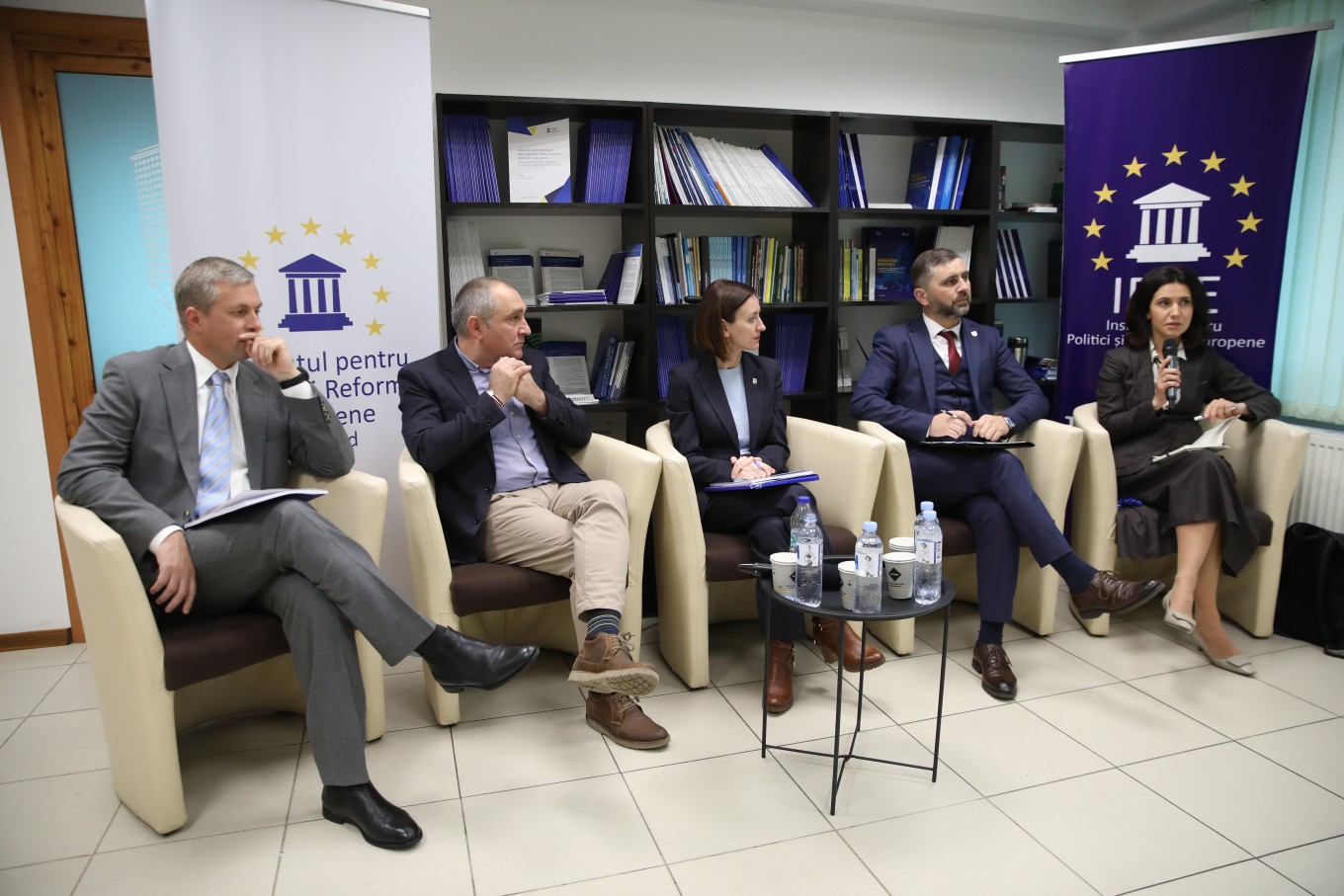Key Recommendations for enhancing the efficiency of the Anticorruption Prosecutor’s Office in fighting high-level corruption in Moldova

The Institute for European Policies and Reforms (IPRE), publishes the Functional Analysis of Moldova’s Anti-corruption Prosecutor’s Office (APO). The report includes over 100 policy recommendations for enhancing the efficiency of APO in fighting high-level corruption. The research forming the basis of the Functional Analysis explored the situation with the jurisdiction, powers and limitations of APO in legislation and in practice as well as functioning of APO and its cooperation and coordination with other authorities within its competence.
The report was presented today, November 22, 2022, during a Public Event organized by IPRE with the participation of Veronica Dragalin, Chief of the Anticorruption Prosecutor’s Office, Olesea Stamate, Chairwoman of the Legal Standing Committee of Appointments and Immunities of the Parliament, Victor Munteanu, Director of the Department of Justice and Human Rights of the Soros Moldova Foundation, Vladislav Gribincea, President of the Legal Resources Center of Moldova (LRCM), Victor Stratu, Deputy Head of the Directorate for Drafting Normative Acts, Ministry of Justice and Rouslan Ryaboshapka, international anti-corruption expert, ex-Prosecutor General of Ukraine.
The policy paper was prepared and presented today by Vitalyi Kasko, IPRE international expert and former Deputy Prosecutor General of Ukraine. The main findings of the report include a detailed analysis of the jurisdiction, powers and limitations of APO (Section I) and functioning of APO and cooperation with other actors (Section II).
The research generally confirms that, despite the substantial progress achieved by Moldova in its anti-corruption efforts, many significant gaps and omissions remain to be addressed in both its legislative framework and practice to reach the goal of effectively combating high-level corruption in the country. In particular, it was established that the mandate of APO is too broad and goes beyond corruption and corruption related crimes, not to mention high-level corruption, that there are problems with the workload, organisation, prioritisation and planning of its work. APO does not have sufficient independence within the prosecutor’s office system, nor does it have enough organisational, financial, human, technical and other resources to ensure the effective operation of this institution. Moreover, even those minimally necessary provisions that were laid down in the Law on Specialised Prosecutor’s Offices (No 159) back in 2016 have not been mostly implemented until now (over 6 years).
The findings served as a basis for recommendations for an enhanced response which are presented in the concluding Section III of this Functional Analysis (Roadmap to enhance the efficiency of the Anticorruption Prosecutor’s Office – Key Recommendations). For greater convenience, the key recommendations of Functional Analysis are divided into sections and suggested implementation time frames – short-term (up to 6 months), middle-term (6-24 months) and long-term (3y+). It should be noted separately that the provided recommendations are quite detailed and practical, but only their complete and accurate implementation can, in the opinion of the author, radically change the situation and ensure the effective work of APO in combating high-ranking corruption in Moldova.
For more details, the Functional analysis report can be found in English here and in Romanian here.
The video recording of the public event presenting the Report can be watched here.
This publication was developed within the project “Ensuring integrity, efficiency and independence in the justice system of the Republic of Moldova” implemented by the Institute for European Policies and Reforms (IPRE) with the support of the Soros Foundation Moldova, as well as within the project “Increasing the role of think-tanks in supporting the national effort of European integration of the Republic of Moldova – #ThinkTanks4EUMembership” with the support of the Open Society Foundation (OSF). The views expressed in this publication belong exclusively to the author.

